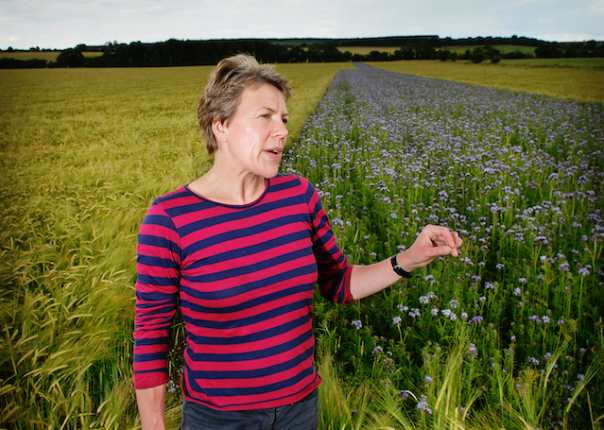
In a speech to farmers and environmental groups at an Oxford Farming Conference OFCBitesize event, Environment Secretary George Eustice said: “We want farmers to access public money to help their businesses become more productive and sustainable, whilst taking steps to improve the environment and animal welfare, and deliver climate change outcomes on the land they manage.
“Rather than the prescriptive, top-down rules of the EU era, we want to support the choices that farmers and land managers take. If we work together to get this right, then a decade from now the rest of the world will want to follow our lead.
“These plans will transform the way we support farmers, in the most significant change to farming and land management in 50 years.”
Helen Browning, chief executive at the Soil Association, said: “We welcome this update on immediate next steps for farm policy, though at this stage the downside and exit routes for farmers are more detailed than any future schemes which may provide financial support.
“It’s heartening to see the wind of change in Defra and the commitment to engagement and co-design of future incentives and support.
“These plans are currently largely opaque and while a shape is emerging, it’s not one farmers could yet take to their bank manager.
“There is remarkable consensus emerging between farmers, environmentalists and citizens about the opportunity to set a new course for farming and food, to transform it from being at the heart of the challenges we face now, to right at the heart of the solution.
“Government has a huge responsibility to channel this consensus into action, and fast.
“With market disruption, Brexit looming, weather patterns changing and the lifebuoy of CAP support rapidly deflating, there’s a burning platform ... but leadership, investment and a robust approach to protecting our standards in trade deals will be needed to ensure that all progressive farmers and land managers can make it through these choppy waters.
“Our vision is a farmer-led transition to agroecology that helps to restore nature, tackle climate change and support healthy, diversified and resilient food production.
“An early test of whether government shares that vision will be a commitment to whole farm approaches, and support for systems like organic which deliver multiple benefits for society, nature and animal welfare.”
The Government’s roadmap outlines changes that will come into force over a period of seven years to help farmers adapt and plan for the future.
Outside the EU and no longer bound by the EU’s bureaucratic Common Agricultural Policy, the plans set out how government plans to introduce a new system that is tailored in the interests of English farmers, centred on support that rewards farmers and land managers for sustainable farming practices.
The changes will be designed to ensure that by 2028, farmers in England can sustainably produce healthy food profitably without subsidy, whilst taking steps to improve the environment, improve animal health and welfare and reduce carbon emissions.
Next year marks the start of the transition where we will begin to move away from the Basic Payment Scheme (BPS) towards new policies that will be co-designed and tested together with farmers, land managers and experts, to ensure that the new systems work for them.
The Government says it remains committed to its manifesto commitment to guarantee the current annual budget for every year of this Parliament.
The new ‘Path to Sustainable Farming’ document sets out more detail on the changes it is going to make, and what they will mean for farmers.
The key changes include:
Introducing the Environmental Land Management scheme to incentivise sustainable farming practices, create habitats for nature recovery and establish new woodland to help tackle climate change.
Investing in improving animal health and welfare as part of our sustainable farming approach. This will initially focus on controlling or eradicating endemic diseases amongst cattle, pigs and sheep .
Direct Payments will be reduced fairly, starting from the 2021 Basic Payment Scheme year, with the money released being used to fund new grants and schemes to boost farmers’ productivity and reward environmental improvements.
Launching a Farming Investment Fund, which will support innovation and productivity. This will open for applications next year and will be used to offer grants for equipment, technology and infrastructure for the future.
Simplifying and improving existing schemes and their application processes further from January 2021 to reduce the burden on farmers, and we will take a modern approach to regulation, cutting unnecessary red tape for farmers and working together with industry to design a more targeted regulatory system.